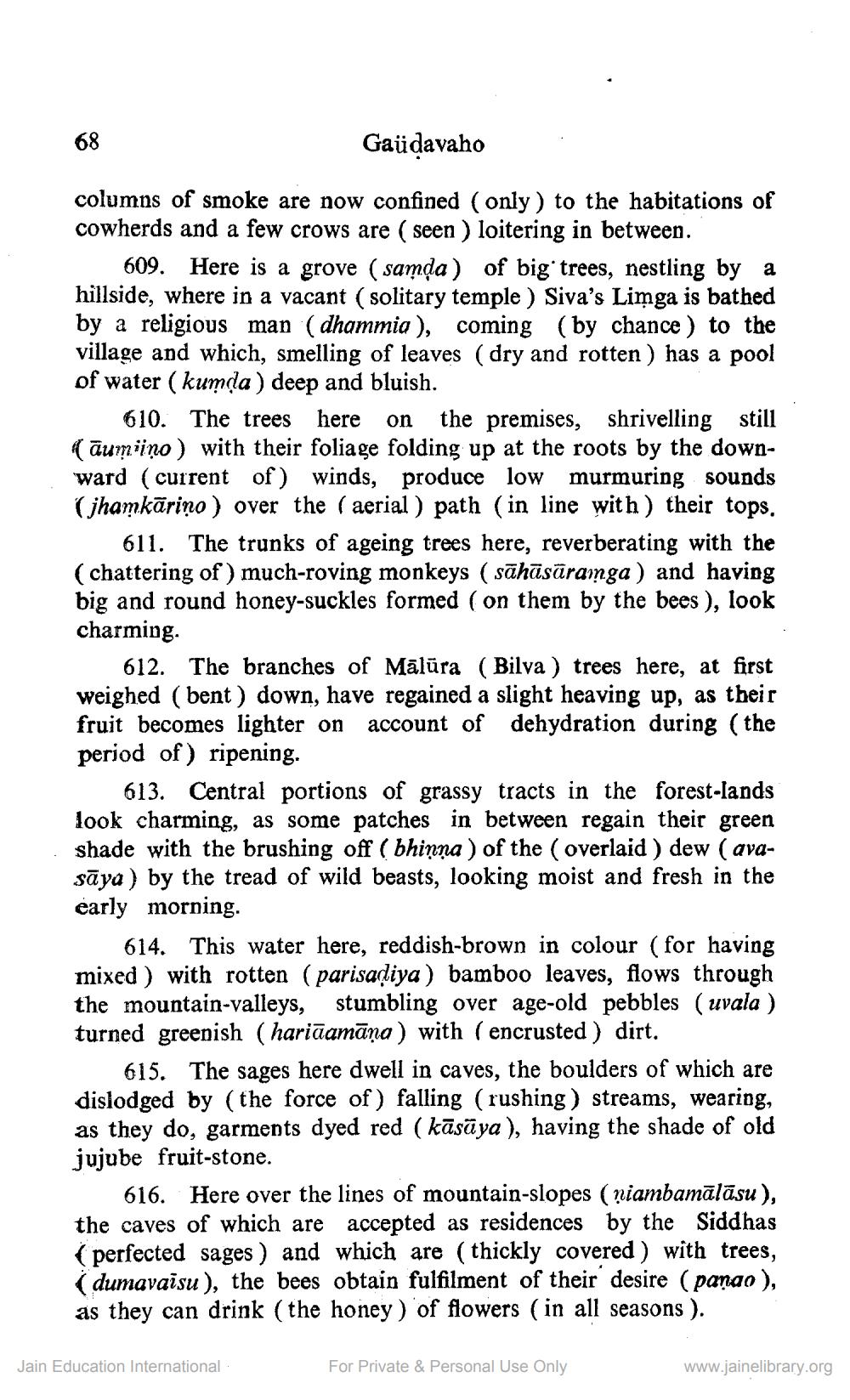________________
Gaüdavaho
columns of smoke are now confined (only) to the habitations of cowherds and a few crows are ( seen ) loitering in between.
609. Here is a grove ( samda) of big trees, nestling by a hillside, where in a vacant (solitary temple ) Siva's Limga is bathed by a religious man (dhammia), coming (by chance ) to the village and which, smelling of leaves ( dry and rotten ) has a pool of water ( kumda) deep and bluish.
610. The trees here on the premises, shrivelling still (äumiiņo ) with their foliage folding up at the roots by the downward (current of) winds, produce low murmuring sounds (jhamkāriņo ) over the ( aerial ) path (in line with) their tops,
611. The trunks of ageing trees here, reverberating with the (chattering of) much-roving monkeys ( sāhāsārainga ) and having big and round honey-suckles formed (on them by the bees), look charming.
612. The branches of Mālūra ( Bilva) trees here, at first weighed (bent ) down, have regained a slight heaving up, as their fruit becomes lighter on account of dehydration during (the period of) ripening.
613. Central portions of grassy tracts in the forest-lands look charming, as some patches in between regain their green shade with the brushing off (bhinna ) of the (overlaid ) dew (avasāya) by the tread of wild beasts, looking moist and fresh in the early morning.
614. This water here, reddish-brown in colour (for having mixed) with rotten (parisadiya ) bamboo leaves, flows through the mountain-valleys, stumbling over age-old pebbles (uvala ) turned greenish (hariāamāņa ) with ( encrusted ) dirt.
615. The sages here dwell in caves, the boulders of which are dislodged by (the force of) falling (rushing) streams, wearing, as they do, garments dyed red (kāsāya ), having the shade of old jujube fruit-stone.
616. Here over the lines of mountain-slopes (ạiambamālāsu), the caves of which are accepted as residences by the Siddhas (perfected sages) and which are (thickly covered) with trees, (dumavaisu), the bees obtain fulfilment of their desire (pañao), as they can drink (the honey) of flowers (in all seasons ).
Jain Education International
For Private & Personal Use Only
www.jainelibrary.org




